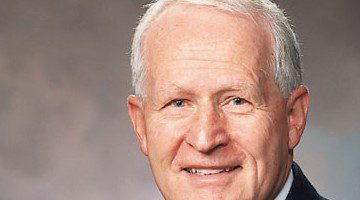By Jehan Sadat
Today you are being presented to this assembly as educated citizens. But take heed–the most important test still awaits you. The test will be far more comprehensive, far more meaningful than any examination you have ever taken before. The test awaiting you is the one that life imposes, the one that measures the quality of your life, the extent and depth of your character, and the magnitude of your soul. It will take measure of what you give in this life and the legacy you leave for future generations. How well you do will not be enhanced by your individual wealth or fame, your position or power, but rather by the content of your heart. All the things that money can buy will not guarantee you success, for the things of life will not bring you peace.
Anwar Sadat was never motivated by a longing for wealth or power but rather by his love of God, his family, and his country. Long before my husband became the president of Egypt, he spent many years in prison–some in solitary confinement–because he opposed the British occupation of our country. Years later he wrote in his autobiography that, while in prison, he realized the power of God’s love and that, when one acts with love, all things are possible. My husband and I were never rich in the things of life. I remember how he used to tease Barbara Walters that her salary was much more than his, and he was the president of Egypt. Yet my husband and I were wealthy beyond imagination with what is truly important in life: faith, family, friends, and country.
Today the peace that exists between Egypt and Israel–unchanged since the signing 20 years ago–is testament to the love Anwar Sadat felt for the people of the Middle East–Arabs and Israelis. My husband was a brave and visionary leader willing to risk everything, even his life, for peace. And for his pursuit of peace, he paid with his life. But the memory of Anwar Sadat will forever live as a symbol of peace. Peace was his mission; peace is his legacy.
Although you may not become a president, each of you can be a builder of peace. You can make the conscious decision to find ways, sometimes just little ways, to improve the lives of others. In your work and in your family, you can speak softly and treat others with dignity and respect. The bridges to peace are not built with concrete and steel but with kindness and tolerance, compassion and understanding.
As I look around today at all of your proud parents, I remember how I felt when my four children received their university degrees. Yet as wonderful as this memory may be, it pales at the pride I feel in knowing that my children are good, loving parents and kind, gentle human beings. The university of peace is in the home, and mothers are the first professors. They are the ones who teach us to love and respect each other, to compromise and share.
Nothing in this life is more important than learning to live in peace. Gentle spirits and attitudes of peace are not made in conference rooms or halls of government or in front of the television cameras. Lasting peace comes from an unselfish love, not the love of reward and recognition but the love that grows in our souls and teaches us to want for others what we want for ourselves.
The conditions of life are not always easy, and human beings are not perfect. You will make mistakes. In this age of rapid information, we can see the worst of man’s inhumanity to man simply by turning on our television sets. Of course, with all that is going on in the world, it is easy to doubt man’s desire for peace. It is easy to see man’s betrayal of God’s commandment to love one another. But we must never retreat from the possibilities of peace.
By following the examples given by gentle, unassuming men and women whose lives echo the eternal message of peace on earth, you can build a world of peace. People like Mahatma Gandhi, Nelson Mandela, Martin Luther King, Mother Teresa, and Anwar Sadat have shown us how ordinary human beings with extraordinary courage and conviction can change the world. Peace dwelled within their hearts and became the reality of their lives.
In light of recent events and the spread of conflict in all corners of the world, I can understand why you may find it difficult to imagine a world of peace, to accept that love can ultimately defeat the forces of evil. Yet standing here before you, looking into the faces of you young people who remind me so much of my own grandchildren, I can honestly and sincerely tell you that I do believe in peace. I believe a just, comprehensive, and lasting peace will come to the Middle East. I believe that a path to peace can be found in the heart of Europe and anywhere else on this earth where tyranny attempts to reign. The majority of people in the world today want peace, and we must each do everything in our power to build a world of peace.
Jehan Sadat is a grandmother, advocate of women and children, and the widow of Anwar Sadat, former president of Egypt. This article is adapted from an address given at BYU commencement exercises April 22, 1999, during which Mrs. Sadat was awarded an honorary degree.









